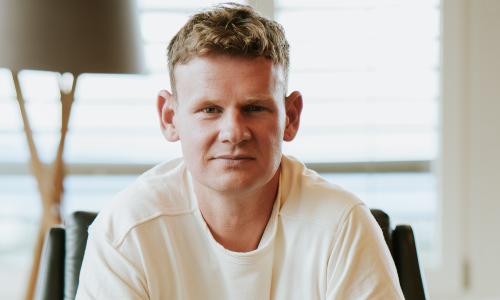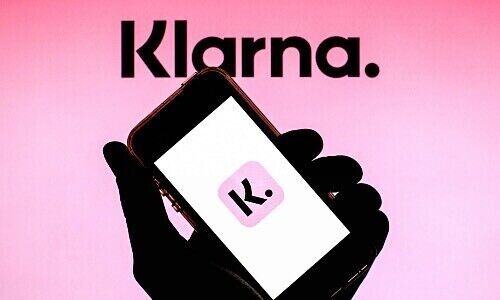Klarna was once Europe's most valuable startup. In Switzerland, the growth of the payment and «buy now pay later» services provider is enormous, country CEO Christian Kehr tells finews.com. Even ChatGPT or Airbnb now play a role in the business model.
When Klarna announced large-scale job cuts in May last year to tame spiraling costs, the disillusionment was enormous. Globally, the company cut ten percent of its workforce which manifested itself in the Swedish group's first quarterly results.
Klarna was able to halve its operating loss compared to the previous year and the transaction volume, as measured by gross merchandising volume (GMV), increased by 17 percent. The company also gained new key partners, including Airbnb, and also cooperates with ChatGPT. Anyone looking for a product via the AI portal will see the results of their search on Klarna.
Swiss Figures Doubled

Klarna Switzerland CEO Christian Kehr (Image: Klarna)
«In Switzerland, we've been able to double the numbers in the past twelve months,» said Christian Kehr (pictured above), Klarna's Switzerland CEO, in an interview with finews.com. «The number of active users of the Klarna app has increased by almost 50 percent compared to the previous year,» he added. Although the company doesn't disclose concrete values, Kehr reveals that «With Buy now, pay later (BNPL), the average order value is 130 francs.»
Klarna's Top Customer: ON
Kehr goes on to explain that rising interest rates have not fundamentally changed the business model as Klarna continues to earn money mainly through fees the company generates from merchants. It's clear, however, that puts more pressure on the margin with higher financing costs.
Klarna works with 13,000 merchants in Switzerland, and new large accounts would also have helped with the strong growth. In April, the company announced a collaboration with the German Deichmann Group's shoe retailer Dosenbach. Speaking of shoes: one of Klarna's biggest customers in this country is the sports shoe brand «ON.»
Kehr considers it a success that Klarna is gaining traction with luxury brands such as Richemont with its BNPL and financing offers. «With BNPL, we're clearly the market leader in Switzerland.»
Total Shopping Experience
Klarna is no longer relying solely on this business segment as a growth driver. With new functions, the app has developed into a comprehensive shopping application where customers can search for products and compare prices.
Also new is the overview of purchases and orders made. «We offer a complete shopping journey and help brands improve their digital sales channels,» the CEO continues. «Many of our customers pay for their goods immediately via Klarna PayNow and do not use BNPL at all. Paying through Klarna is often faster, easier, and more flexible than using a credit card, as there are no forms or screens to fill out.»
In the Palms of Their Hands
Swiss customers are used to purchasing on account, and «paying via Klarna offers a high degree of flexibility, for example, if you want to hold the product in your hands or try it on first before paying for it.» The stable low default rate also proves that BNPL does not contribute to consumers getting into excessive debt, Kehr says.
Financing accounts for only a small share of the business, Kehr explains, which is about three percent globally. The company also launched a new B2B solution and is working with merchants on how to make sense of customer data. «Our offering includes much more than just the payment function. We offer clear invoice control, customer service, and, of course, the store. Most merchants only have a digital version of an invoice purchase,» Kehr says.
Baby Boomers Biggest Users
The image that Klarna is primarily something for Generation Z customers hasn't been true for a long time. «In Germany, the average age of our customers is 45, and the fastest-growing age group of customers is 55 to 60.» That's clearly the baby boomer demographic of those born in Germany between 1955 and 1970, while Generation Z includes those born between 1995 and 2010 and considered the first to grow up with smartphones.
Klarna operates in 45 countries and has around 150 million customers worldwide and some 500,000 affiliated merchants. The Swedish company had seen explosive growth in recent years, fueled by the online shopping boom during the Corona pandemic, which was then tapered off in 2022.
From $46 Billion to $6.7 Billion
The company's valuation had been a whopping $46 billion in a 2021 funding round. Klarna was thus the most valuable startup in Europe. Last year, the valuation plummeted to $6.7 billion.


































